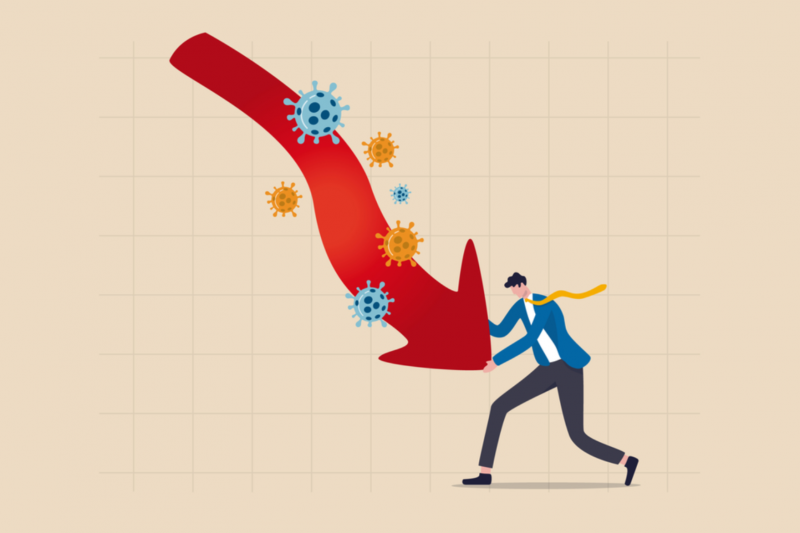“This is the worst small-business crisis of my lifetime, and I’ve seen a number of tough moments,” said Karen G. Mills, who led the U.S. Small Business Administration from 2009 to 2013. “I’m quite concerned that we haven’t even seen the tip of the iceberg of business closures.”
In the Harvard Business Review this week, here is what Mills advises for cash-strapped business owners:
- Focus on social media and email to reach customers. Businesses don’t need a comprehensive digital strategy, or even a website, to succeed. An Alignable survey found that 25 percent of respondents were turning to social media to reach customers while 18 percent were engaging them through email.
- Scrutinize every cost. As we’ve said in our GrowBiz series on cash flow, companies should try to renegotiate contracts with suppliers and landlords, and refinance debt. Small business owners might need to track spending daily so they can react quickly to changing economic conditions, she says. Use free and low-cost tools from banks and fintech firms to synthesize financial performance on real-time dashboards, she advised.
- Concentrate on the best profit opportunities. If a restaurant’s tried-and-true burger has a stronger gross profit margin than its artisan cheese platter, it’s time to dump the cheese, she says. Also, she said, understand who your most loyal and profitable customers — who they are, what they buy, and how to engage them – and let that guide your strategy, says Mills, a senior HBS Fellow.

The US government also needs to extend aid efforts, Mills says. The Paycheck Protection Program allocated $659 billion in forgivable loans to small businesses that agreed to retain employees and maintain salaries. The program, which expired on Aug. 8, likely reduced the number of firms that permanently closed, according to a new HBS study.
Mills recommends that the US government replenish and restart the PPP, but find more ways to support the smallest, most vulnerable businesses, many of which are women- and minority-owned. Mills says that future loans should be simpler, easier to access, and provide more flexible terms to encourage participation.
VIEW FROM THE SHARK TANK
While Mills was cautiously optimistic, Shark Tank investor and small business expert Kevin O’Leary was singing a different tune during a recent CNBC show. He estimates 20% of small businesses, particularly in travel, entertainment, and food services, are going to die soon because of the way consumer spending has changed. O’Leary said the government shouldn’t help businesses that are bound to die, and he would agree with the government if it abandoned PPP in the next stimulus plan.
“This is the time to stay focused and positive,” O’Leary told small business owners, speaking at CNBC’s Small Business Playbook virtual summit. “This may be the time to pivot and pursue something new in the digital America 2.0 economy right now. Consumer behaviors have shifted. It’s all about selling products or services directly to consumers who have gotten used to this method of shopping since the Covid-19 health crisis began. It’s a whole new generation of people who are planning not to go to stores anymore.”
He continued: “Entrepreneurs are creative by nature and many will live to see another day through this [pandemic]; but others will not. You’ll know in your heart when it just isn’t going to work out… Sometimes it just makes more sense to start fresh when you have more certainty about market conditions. There is no shame in shutting down a business if you think it’s no longer viable.”
Taking on debt when your business is in trouble is not always a good idea, O’Leary cautions. “Use this simple formula: Never use more than one-third of your company’s free cash flow to service debt. And that includes the principal and interest payments. That’s the magic number.”
He also said: “The key is to communicate and forge a direct relationship with your customers. You need to reach out to them and explain the benefit of your product and services. Above all, let them know you are still in business, even if your physical store has closed.”
READ MORE ON GROWBIZ:
IN THE HARDEST-HIT RESTAURANT INDUSTRY, SURVIVAL ISN’T 0PEN AND SHUT
KEEP CUSTOMERS COMING BACK: HOW TO MAKE YOUR BUSiNESS AND WEBSITE MORE WELCOMING
HOW TO REINVENT YOUR SMALL BUSINESS FOR THE ‘NEW NORMAL’

